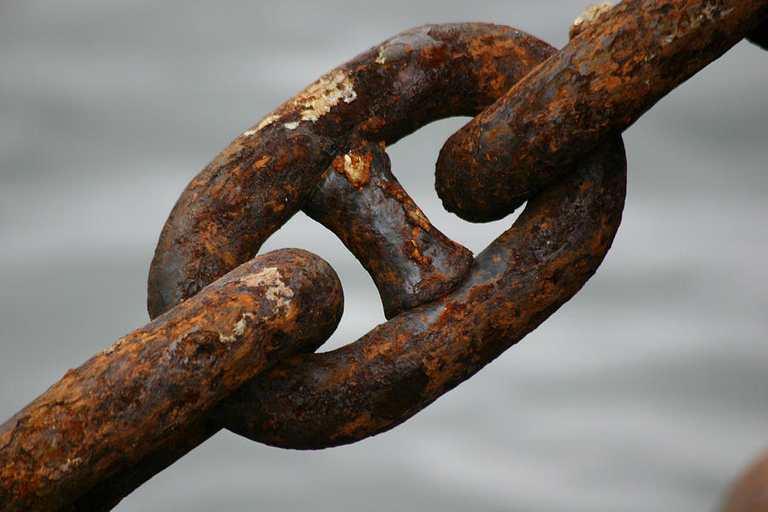This article appears in my personal blog. I wrote it and I own it. This the link to the original article
https://journeybacktothesource.com/emotional-drugs-because-we-are-all-toxic/

Dependence on negative emotions is the most irrational and harmful behaviour that human beings perpetrate without interruption. Here are the reasons for this crazy self-destruction and above all the ways to get out of it.
“By building their own cage everyone learns to love it.”
Mirko Badiale
If there is a situation in which we all stumbled upon is to live a toxic relationship. And when I talk about relationships I am not referring only to the couple relationship. The term relationship includes all those facets related to the relationship with the other: love, friendship, family relationships, work relationships, cohabitation. But with relation, we can understand, by extension, all that concerns the “I” which is related to another other than the I. Practically speaking: situations, events.
The funny thing about this matter is that we are extremely aware of what is happening when a person next to us ends up living a toxic relationship: we immediately recognize that it is actually a harmful addiction, we claim to know what he/she should do, how and when. Ironically, we are not as good at realizing when we have fallen into the trap ourselves and, if they try to point it out to us, we deny it with all our strength, like the child who stole the jam.
How to recognize that in a moment of our life we are “drugged”? What to do to get out of the tunnel?

How we become an “addict”
Addiction to toxicity
In this article, we will only deal with the dynamics of toxic addiction. About why we fall into these situations, we will talk about it elsewhere. Let us examine the dynamics that make us “slaves” of these toxic relationships: the dependence we have developed towards them. When we take harmful substances of any kind (be they drugs, alcohol, junk food) the body is intoxicated. Initially, it reacts by trying to eliminate toxins, but when these do not hint at diminishing, it establishes a “relationship of coexistence” finding a new balance. When these substances are no longer taken, the body “misses them” and pushes the brain to look for them. A very similar mechanism happens for emotions: initially negative emotions hurt us and we avoid them, but when we are overwhelmed for a long time, we consider them as “part of us“, to the point of searching for them when they fail.
So, when we “stumble” into the “toxic person” who only waited for us to vent his frustrations, it is usually already too late. Also because these people rarely bring out the worst of them at the beginning of a relationship.
Initially, they captivate us with mellifluous words and dull deeds. Then slowly, when they have already breached us, they add small doses of poison, until they let themselves go throwing up the worst of them. Here we are fully intoxicated, dependent on that bitter gall disguised as honey.
The cure hurts more than the disease
Taking up the previous analogy, when we are intoxicated by harmful substances, a further problem is created: the inveterate smoker who quits smoking starts the detoxification process that leads the body to get sick; catarrh, cough, shortness of breath, colds, bronchitis. So as to make him think he was better when he smoked. Likewise, it happens during the detoxification of negative emotions: one suffers in a way that we cannot explain ourselves, coveting what until recently did nothing but harm us, just like the drug addict towards the substance. We know that what was given to us was hurting us, we didn’t deserve it, it wasn’t for us, but in spite of everything we can’t do without it, because it is seasoned with that drop of “honey” that so inebriated us. This is why detaching ourselves from toxic relationships is so difficult: because detachment causes us more pain than dependence. So we prefer to stay in that situation of suffering mixed with stupid gloating that at least makes us feel “alive“, in some ways “loved”.
Self-love
Before turning to provide methods to get rid of these addictions, it is necessary to show what is the fulcrum of all happiness, the source of well-being, the engine of fullness: self-love. It is clear, therefore, what the cause of all evil is, the principle of every misfortune: not loving ourselves. Those who do not love themselves will search outwardly for an external being that gives them the feeling of being loved. But no one can really make you feel loved if you don’t love yourself first. Whenever we are looking for a “saviour“, we always end up putting ourselves in the hands of torturers. Why don’t we become dependent on “healthy” people but exclusively of “jailers“?
The fact is simple: a person who is rooted, centred, who loves himself, does not have the slightest desire to create relationships of dependence with anyone. Not even in a leadership role. As soon as a situation of this kind is created, the balanced person nips it in the bud. Instead, those who have unbridgeable voids that tend to fill with the need to psychologically subdue another human being, expect nothing more than to find a “victim“. And here the two main figures of the toxic relationships are outlined, not without generalizing: the victim and the executioner.
The game of the victim and the executioner
There is no executioner without a victim and there is no victim without an executioner. This question does not in any way justify the behaviour of the executioner: he/she should always be condemned. Unfortunately many people, in an unconscious way, usually because of a difficult and suffering experience, consider themselves victims of the life that has been so unjust with them and to be able to keep alive this “role” that somehow they have chosen, they need a counterpart who play that of an executioner. This arrangement means that they are constantly looking for torturers ready to make them feel damned. They do not even see healthy, balanced people who may be interested in them. They are not attracted to them, although they may recognize their moral value. Instead, they throw themselves in the hands of an experienced executioner, ready to torture the victim at every opportunity.
It is well understood that the first step is to understand if we have this dynamic of the victim in us. It takes a lot of humility to admit to having developed it, that we carry it within us, hidden like a precious treasure because no one who is mentally healthy can even conceive of wanting to be tortured. In reality, we all have more or less developed a self-defeating part. Once we have recognized it, we must accept it. We must learn not to judge it to understand where its roots sink, what generated it and what it feeds on, what are the deep needs that it tends to.

How to break the circle of addiction
Feeding the needs
Once we understand that the cause of all addiction is to be sought in an unresolved need, that in all likelihood originates far back in time, we are at a good point. The easiest (and most common) mistake is the same as when we want to get rid of bad eating habits: following strict diets, imposing strict rules, renouncements of all kinds to “pleasures” that do us so much harm. Usually, it lasts a few weeks, a maximum of a month or two. Then we start eating everything that we still crave for. So what should we do? Simple, we try to feed the deep needs. Exactly like with the diet.
Let’s take some practical examples: If a person has a chocolate addiction, it is probably because he/she has a magnesium deficiency. In that case, it is advisable to take it from other foods, such as sunflower seeds. The desire for bread, pasta and pizza is generated by the lack of energy, glucose and fibre. Therefore, it is better to eat nuts like almonds, walnuts and hazelnuts. The craving for fried and greasy foods hides the need for healthy fats (unsaturated fats), which can be satisfied by eating avocado or coconut. Not being an article on nutrition, let us interrupt the examples here that serve only to make the concept understandable. In the same way, in fact, one must behave with emotional needs. The mind urges us to desire something that satisfies an emotional need, but which has serious side effects; instead of opposing this desire with strength, finding something capable of satisfying the need without such negative effects.
Effective methods
Since the emotional world is extremely more complex than the organic one, there are no tables to follow. Everyone has to find out what lies behind their needs. We need a highly developed introspective capacity because we, living things from “inside”, are not able to see clearly the dynamics of our unconscious. Fortunately, life helps us by constantly putting ourselves to the test, repeating the lesson until we have understood it, with the determined patience of an untiring mother. The repetition of similar negative events in our lives is a clear signal that we must de-program our behaviour, approach and mental scheme towards that particular thing.
For example, if we always find boys who are assholes and just want to take advantage of a poor defenceless girl, it does not mean that we are unlucky, but that we must probably strengthen our personality, sharpen our intuition about people, learn to stop these toxic relationships immediately. Or, if we do nothing but run into girls full of complexes looking for a saviour to pour out all their pathologies of frustrated women, it’s probably not because we have the spirit of the Red Cross, but it means that we need to review the image we have of us, which usually corresponds to that of the hero always ready to sacrifice himself to save the girl in danger among the jaws of the dragon.
Dialogue techniques
In light of this, there are many types of external help we can get. The most classic are those that use the words, dialogues. Psychology, psychotherapy and similar are indicated in pathological situations. Otherwise, figures like the counselour or the life coach are very effective. They are techniques that are mainly based on dialogue and, through targeted questions, active listening, empathy and useful advice, allow those who use it to be mirrored by their guide, who has the possibility, therefore, to show them clearly the dark sides on which they must bring light, the weak ones to reinforce and the closures to open.
Holistic therapies
To bypass the rational mind and reach the unconscious, we can rely on the hands of a holistic operator who, through various types of techniques that pass through the body, sounds, movement or other specific tools get to move the blocks that nest in the deep unconscious. Shiatsu, music-therapy, biodanza, are just some examples. The aim is always the same: to ensure that the recipient acquires a centring and rooting in himself that allows him to overcome the moments of weakness step by step. The important characteristic of the holistic world is that it is based on giving strength and nourishment to the individual (both physically, energetically and psychologically and emotionally) in order to develop the power of self-healing that we all have. More than fighting the “evil”, the “disease”, the good is strengthened, so that slowly it turns the dark side into pure light.
Essential ingredient: the opening of the mind
Obviously, there are many methods to detox from negative emotions, but none can be effective without the desire and willingness to want to “heal”. In the same way, genuine openness of spirit accompanied by substantial determination and willingness to change, even without external help, may suffice. Because, like most of the problems we have, it is a question of finding the strength to change ourselves, getting out of the shell of the comfort zone (even if toxic, it is now a comfort zone for us) and questioning ourselves.
In other words, it is accepting a small death in order to be reborn with a new self. In the end, this is the test of life, of any mode and type: initiations into a new existence. Without this disposition to change, to get involved, we can never get out of our cage. This is the fulcrum of all growth.
Unfortunately, our society educates us to delegate to others the task of healing: let’s go to the doctor and wait for him to give us the magic pill that solves the problem for us. But that’s not how it works; this doesn’t work for physical problems, much less for emotional or psychological ones! Every “disease”, illness, imbalance needs a change in our lives. If there is no change, there is no healing, ever. At most, there is a shift in the problem.
#selfesteem #selfconfidence #emotions #addictions #personalgrowth #lifecoaching #comfortzone #lawofattraction
Hi! I am a robot. I just upvoted you! I found similar content that readers might be interested in:
https://journeybacktothesource.com/emotional-drugs-because-we-are-all-toxic/
Hi @Cheetah. The one that you linked is my personal blog. So, I just posted here something I posted earlier on my personal blog. It's still my own property and I have written it by myself https://journeybacktothesource.com/en/
Congratulations @agarashthedamned! You have completed the following achievement on the Hive blockchain and have been rewarded with new badge(s) :
You can view your badges on your board And compare to others on the Ranking
If you no longer want to receive notifications, reply to this comment with the word
STOPDo not miss the last post from @hivebuzz:
Support the HiveBuzz project. Vote for our proposal!